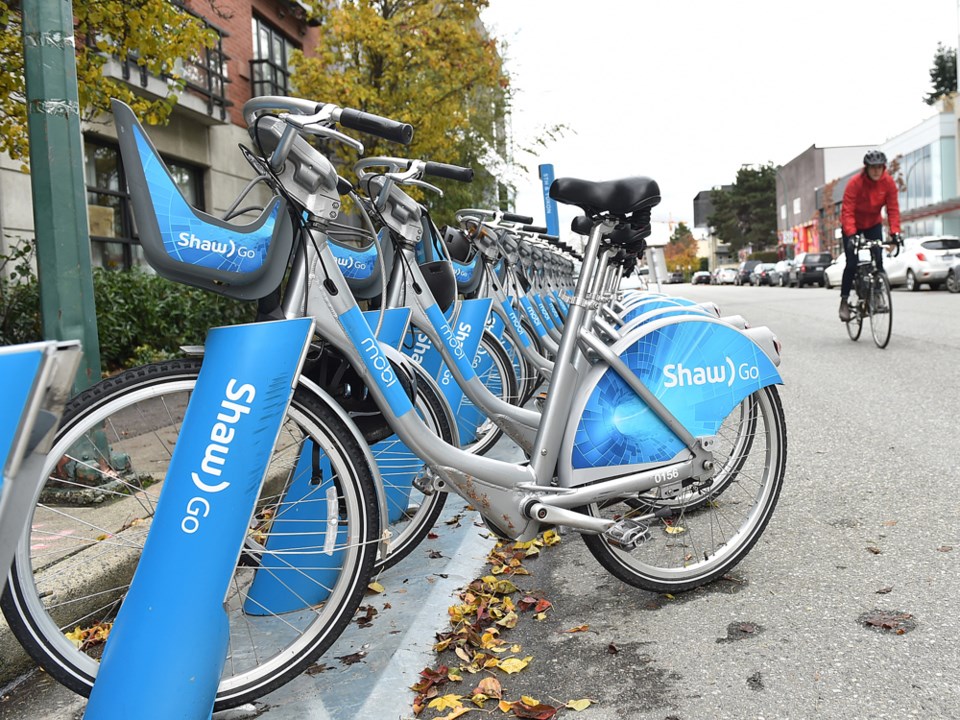Burnaby residents will likely soon have a new way to get around town, when a bike-share pilot program launches.
On Monday, city council approved a recommendation from municipal staff to advance a request for qualification from potential bike-share operators.
The city has already been approached by several operators looking to expand in Burnaby, according to a staff report.
Bike sharing systems, like Mobi in Vancouver, provide short-term bicycle rentals. Allowing such a service in Burnaby could have many benefits, as well as potential drawbacks, the report says.
“Bike-sharing can increase mobility choice and flexibility, reduce congestion and fuel use, provide for multimodal transport connections (e.g. use of transit and cycling to make on trip), and even replace or supplement trips that may be circuitous or inconvenient by another mode,” wrote city staff.
The report compares the pros and cons of the two main types of bike-sharing systems: docked and dockless.
Docked systems use “kiosk-based docking systems.” They are less prone to theft, make bike maintenance easier and have better control over who can access the bikes, staff wrote.
But, the report says, docked systems require operators have to constantly shift bikes around docking stations, are more expensive and often require a public subsidy.
Dockless systems have users park bikes either anywhere in the service area or in specified areas, often identified with paint on sidewalks.
“These schemes provide greater flexibility by eliminating the need for permanent docking stations, and provide more convenience for users in location and dropping off bicycles,” the report says.
Burnaby city staff note the dockless bike-share systems can clutter public spaces and make maintaining the bikes harder.
The City of Vancouver launched Mobi by Shaw Go in 2016, a docked bike-share system that now has 175 stations and 1,500 bikes in use.
The University of British Columbia, Richmond and Port Coquitlam are launching their own pilot programs, according to the report.
The city will request proposals from potential operators to launch an 18-month pilot program that will inform policy changes for a potential permanent system.
Staff want to see a system in which the city’s fees and permits cover all costs associated with the bike-share system.



